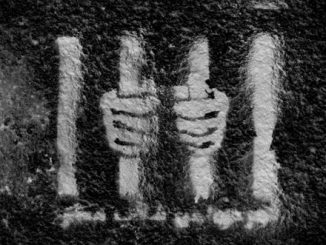
The hangings came days after the largest mass execution in recent Egyptian memory
Egyptian prison authorities executed five inmates on Tuesday. The prisoners had been sentenced to death, four of them allegedly over a bombing that killed military cadets, according to security officials.
The hangings came days after the execution of 15 inmates allegedly convicted of attacking police and the military in the largest mass execution in Egypt in recent memory.
Four of those executed on Tuesday had been sentenced to death by a military court over a 2015 bombing at a stadium north of Cairo that killed three military cadets. They had been accused of having links with the Muslim Brotherhood. The fifth had been sentenced to death over a criminal matter, the sources said without elaborating.
The convictions in the first instance and appeal trials relied on confessions that the four men who were detained gave when they were subjected to enforced disappearance for periods of between four and 93 days, during which they said they were subjected to torture and other ill-treatment by the National Security Agency (NSA) of the Ministry of Interior. The convictions also relied on investigations carried out by the NSA that were deeply flawed.
The High Military Court and the Court of Cassation in Egypt have increasingly been upholding death sentences since April this year, often based on confessions obtained under torture and during periods of enforced disappearance.
On 19 June 2017, the High Military Court upheld the death sentences against Lotfy Khalil, Sameh Abdalla, Ahmed al-Sehemy and Ahmed Salama, all of whom were present in court.
Based on Articles 111-114 of the code of military justice, defendants can appeal their verdict before the Military Appeals Office within 15 days if they are able to present major due process or procedural errors. However, lawyers told Amnesty International that the Military Prosecution refused to give the lawyers an official copy of the verdicts issued by either the first instance military court or the High Military Court to enable them to file such an appeal, despite this being a requirement under Egyptian laws. The lawyers also said that they had filed a submission to the State Council requesting Egypt’s Abdel-Fattah Al-Sisi not to ratify the sentences, as well as submitting a request directly toAl-Sisi to pardon the defendants or reduce their sentences.
Families and lawyers of the defendants had told Amnesty International that the four men were held incommunicado under conditions of enforced disappearance for periods ranging between four days to 93 days. Further, according to lawyers, the NSA falsified the arrest dates of the men in the official investigations to cover up the period they had spent under conditions of enforced disappearance outside of any judicial oversight. This is a major violation under Egyptian laws and should have led to the dismissal of the case.
The NSA held the men incommunicado in places of detention in Kafr Al-Sheikh city that are run by the agency as well as inside the headquarters of the NSA in Cairo. Their families had sent postal telegrams to the Military and Public Prosecution and inquired about their whereabouts with officials at both the NSA and at different police stations in Kafr Al-Sheikh city, but all denied that the men were in their custody.
Despite the repeated requests by the defendants and their lawyers to be transferred to the Forensic Medical Authority to be medically examined, both the Military Prosecution and the military court refused to order their transfer or open an investigation into the torture allegations. Instead, the court relied on the confessions the men said were obtained under torture and during their period of enforced disappearance to sentence them to death.
Military trials of civilians in Egypt are inherently unfair because all personnel in military courts, from judges to prosecutors, are serving members of the military who report to the Minister of Defence and do not have the necessary training on rule of law or fair trial standards.
On December 26, prison authorities hanged 15 inmates sentenced to death by a military court over attacks on the police and military in the Sinai Peninsula.
Attacks by jihadists in the restive peninsula have killed hundreds of policemen and soldiers since Morsi’s overthrow.
Courts have since sentenced hundreds of Islamists to death, although most have appealed the rulings and won retrials.



